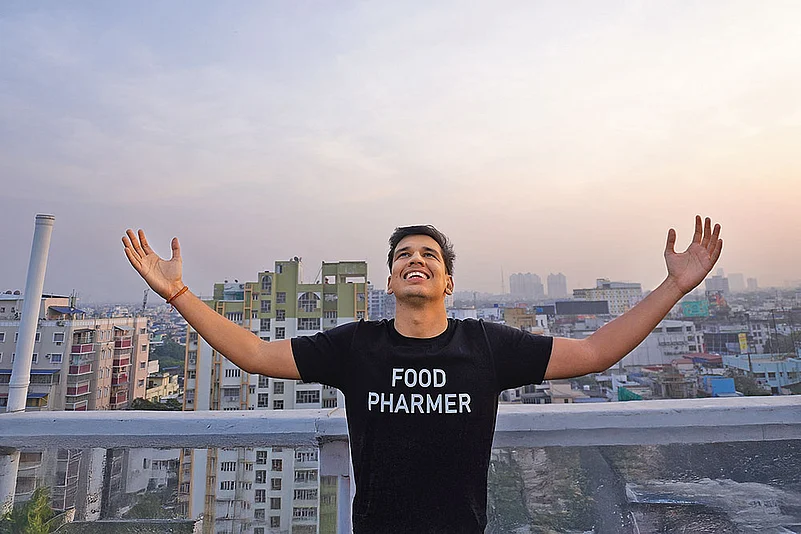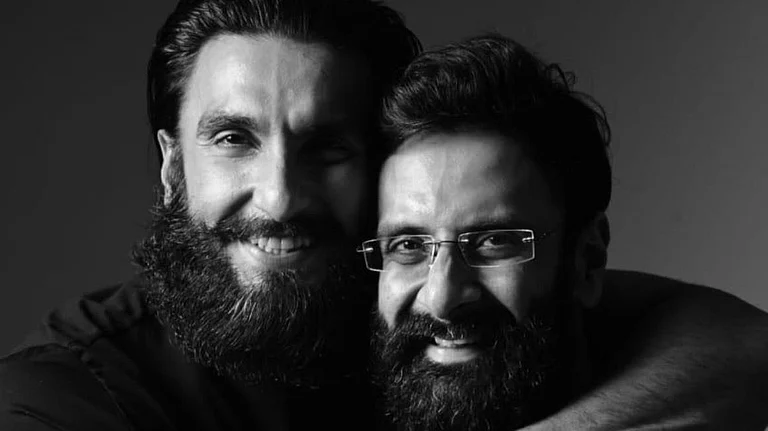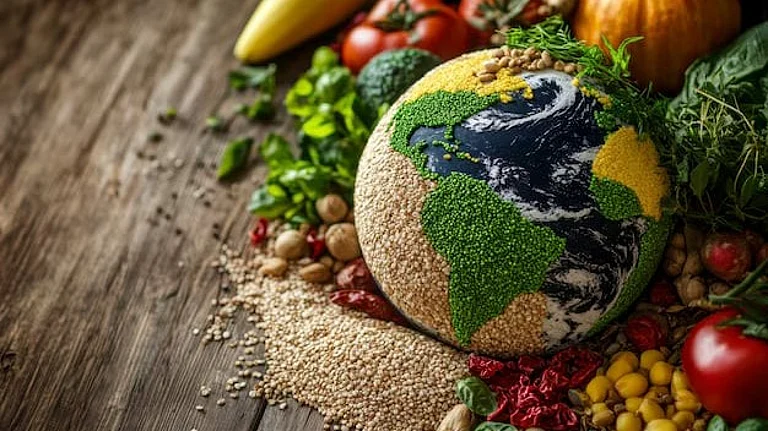The story of the 2004 Bollywood film Swades goes that Mohan Bhargava, an Indian expat and a scientist in the United States, travels to his country to find the woman who raised him following the death of his parents. As Bhargava journeys into the rural heart of India, he rediscovers his homeland, a process that leads to the realisation that India is where he can do his life’s best work.
Much like the protagonist in Swades, it was India where Revant Himatsingka—the food pharmer on social media—found his cause. Himatsingka, who lived in the US for nearly 13 years, worked a high-paying job as a consultant before returning to India to take up his crusade against food labels that mislead consumers.
Since 2023, life has changed in myriad ways for the alumnus of New York University and Wharton Business School. “It was tough making this choice”, he says. But there has been no looking back.
What We Eat
In 2015, Himatsingka was certified as a health coach, hoping it would help him manage his health. Dependence on packaged food was high during Himatsingka’s years in the US but there was a discrepancy between what labels claimed and the contents of packages.
Much of what he bought depended on store displays, the colour of the packaging, advertisements and the names of products. But did it mean people understood what they were eating? The answer was no.
As he probed deeper, he noticed that an ‘organic’ sticker did not indicate if a product was good for the body.
It is difficult to wage a war against big food players; one has to face a backlash but people have got a whiff of it and this is what will catalyse the change. Arun Gupta, Convenor of Nutrition Advocacy in Public Interests
“What we eat has a direct impact on our health, so I decided to focus on solving this problem systematically. I have closely researched the biggest problems that plague our world today. These include health, extreme poverty, climate change and animal cruelty. I don’t know how to solve the other three, so I have decided to focus on health as it is one of the most fundamental concerns and my training in nutrition and health has helped me here,” Himatsingka says.
The 32-year-old, who has over 2.2mn followers on social media, has been creating ripples since April 2023 when he shared his video on sugar content in Bournvita’s drinks. In the video, which garnered nearly 12mn views, Himatsingka claims that every 100g of the health drink contains 50g of sugar.
The backlash arrived in the form of a legal notice from Mondelez India, the manufacturer of Bournvita. The video was taken down but it had had its effect. The National Commission for Protection of Child Rights issued directives to Bournvita to remove misleading advertisements and The Consumer Voice, a voluntary action group, wrote to the Food Safety and Standards Authority of India and the department of consumer affairs to revise regulations and labelling guidelines for health drinks. Bournvita subsequently went on to launch a new range of products with less than 15% of sugar content.
Food for Thought
Labels of other fast-moving consumer goods (FMCG) brands have also come under Himatsingka’s scanner. In a campaign against Knorr, he claims that the company’s soups include palm oil, refined flour and sugar. The ‘chatpata tomato’ soup, for instance, is high in sugar while the chicken soup has only 2.2% of chicken.
“Revant Himatsingka’s work is extremely important. It has helped create noise around knowing food ingredients. Himatsingka’s campaigns can help expedite policy interventions,” says Arun Gupta, paediatrician and convenor of Nutrition Advocacy in Public Interests. He adds, “It is difficult to wage a war against big food players; one has to face a backlash but people have got a whiff of it and this is what will catalyse the change.”
In the meantime, the food revolution “Label padhega India” (India will read labels) is gaining momentum. “I often get mails and messages requesting me for feedback on hygiene, cosmetic and even pharmaceutical products. I am positive that slow change where consumers read and understand and are more aware about their labels will gradually make companies careful about what they are offering. This will go beyond food labels, although for now, a lot remains to be done,” says Himatsingka.
He is aware that there are trade-offs. Over the last year-and-a-half he has had to face financial challenges and legal battles but it has not dampened his spirit. He has also steered clear of food promotions. “I had offers from many brands to promote their products. It would have added to revenue but I intentionally made it a point to not do that.”











